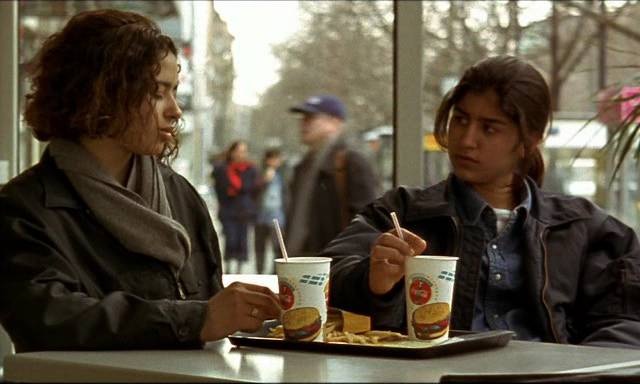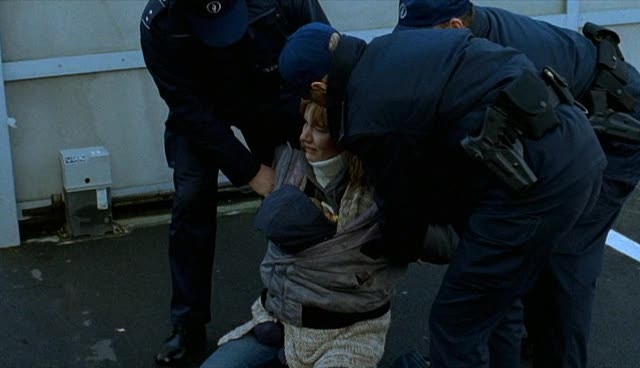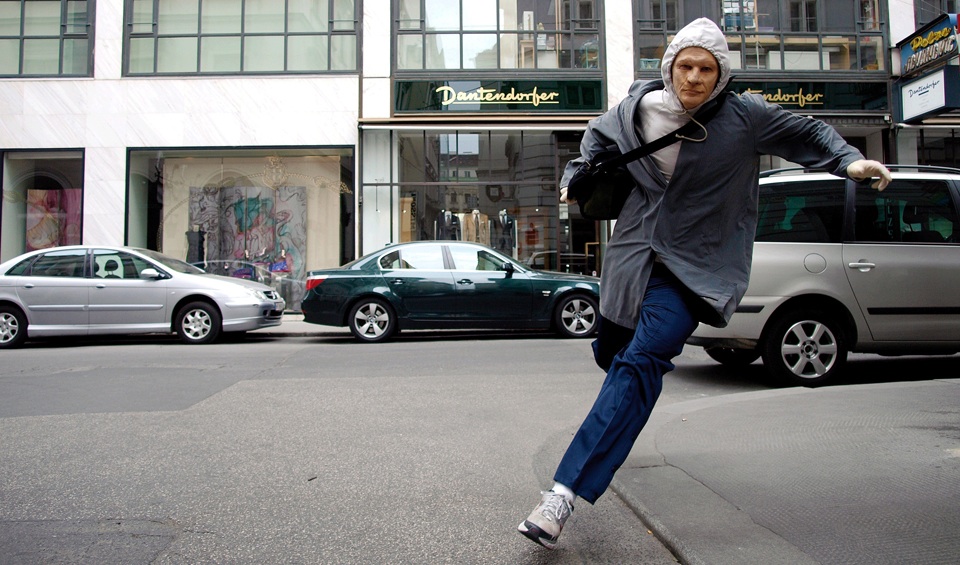The Museum of Modern Art’s seventeen-film series of films from the Berlin School of filmmakers, the most extensive such series yet mounted in New York, arrives at a very felicitous time. Marco Abel, hands-down the leading expert on the Berlin School in the United States and one of the foremost authorities on their work in the world, has just released the first book-length study of this group of filmmakers in English. (Abel will also be moderating a two-day conference on the Berlin School at New York University in conjunction with the MoMA series, on November 22-23.) The book, titled The Counter-Cinema of the Berlin School, devotes full chapters to eight of the nine directors highlighted by the MoMA screenings.
So, in one respect, The Berlin School: Films from the Berliner Schule is well-nigh perfect, serving as an opportunity to take stock of what Truffaut might have called “a certain tendency” in contemporary German cinema while it is still very much an active concern. We must acknowledge at this point that we call it a “school,” or even “Berlin”-centered, as a mere convenience. As Abel and others (including the filmmakers themselves) have noted on numerous occasions, the fact that the major directors to have emerged from this time period have all, to some extent or another, drawn inspiration from three Berlin-based directors associated with the DFFB (German Film and Television Academy Berlin)—Thomas Arslan, Christian Petzold, and Angela Schanelec—can provide only a partial passkey for understanding a general shift in film style. Geography has little to do with it. For instance, the filmmakers associated with the magazine Revolver (Benjamin Heisenberg, Christoph Hochhäusler, Ulrich Köhler and Nicolas Wackerbarth) have continually cited Apichatpong Weerasethakul (decidedly not a Berliner) as a major influence. Do these men comprise a sub-category, a “Bangkok School?”
So naturally, the value of a series like MoMA’s The Berlin School is the opportunity to look back at some films that, over the past decade and a half, we have gotten to know, both singly and as a critically-defined gaggle, and reassess them. In this respect, the educational component of the series is paramount. And, given the fact that the Berlin School remains a bit of a specialists’ designation, with some key directors still not having broken out of the film festival circuit in North America, I can only hope that MoMA plans to travel the series and spread the good gospel. After all, there’s a good deal more to the Berlin School than Petzold’s Barbara (2012), as finely wrought as that minor breakout hit certainly is.
Having said this, however, I must at the same time question the use value of the series, as a group of films, for most filmgoers beyond the two aforementioned groups of prospective spectators: neophytes and academic specialists looking for a second (or third) look. There is something perplexing about a collection like The Berlin School, which is only expansive enough (seventeen films!) to gesture toward just how much more could have been accomplished had the programmers really dug in and expanded beyond the obvious directors and their greatest hits. Granted, some of the key figures, such as Petzold and Arslan, have been productive enough that they would be capable of filling out auteur retrospectives all their own. Some cherry-picking is inevitable.
But why should a series that is limited to seventeen films include such recent arthouse successes as Barbara, or Maren Ade’s Everyone Else, or Heisenberg’s The Robber? Yes, it is true that these films have become somewhat definitive of the “movement.” (And I would argue that Everyone Else is one of a handful of near-masterpieces the Berlin School has so far generated.) But at the same time, these inclusions only point to the fact that films such as Arslan’s highly influential Dealer, Köhler’s Apichatpong-influenced Windows on Monday, or Valeska Grisebach’s shattering debut feature Be My Star have not been shown nearly enough. (By contrast, MoMA is to be commended for dipping into the deep cuts for Arslan’s Geschwister and Schanelec’s Passing Summer. These somewhat random inclusions, however, would make much more sense in the context of a wider-ranging series.)
It may seem churlish to the point of willful crankiness to nitpick about a series like The Berlin School. These are films and filmmakers that require greater exposure, even in New York, and so any series that provides this is a boon. Demanding deeper cuts (e.g., films by egregiously underexposed directors such as Henner Winckler, Jan Krüger, or documentarian Aysun Bademsoy) isn’t just a way of finding fault (or worse, showing off). It’s asking that an opportunity, when it comes up, be explored to the fullest, even as I understand that programmers must manage many external exigencies.
The trouble with the Berlin School films, though, and why I think it matters more that such a series be given the utmost care and attention, is that unlike a lot of other major contemporary film movements, there seems to be considerable lingering skepticism about these films. True, much of it is unspoken, discerned by noticing omissions and silences rather than outright dismissals. But I find it curious that in current “highbrow” film culture, there are still significant areas where Berlin School filmmakers seem strangely unwelcome. Cannes has never invited any of these filmmakers (not even Petzold) into Competition (although Hochhäusler and Schanelec have both been selected for Un Certain Regard). Toronto has offered early support to Grisebach and Köhler, selecting their debut films while rejecting subsequent and equal efforts. And major films such as Grisebach’s Longing (which made Cinematheque Ontario’s Top Thirty for the decade!) and Maria Speth’s Madonnas (screening at MoMA) remain unavailable on North American video, along with any and all Arslan and Schanelec.
The odd thing is, so many of these films gain plaudits from critics (and not just the art-damaged ones) upon commercial release, which leads to a possible hypothesis. Some people may not like the “Berlin School” idea, but they like the films themselves. Yes, some writers and audiences found The Robber needlessly obdurate in its withholding of psychology. Some found Everyone Else a bit coy in a hipster-mumblecore way. (Some critics find everything coy in a hipster-mumblecore way….) A few people thought that Petzold’s Jerichow drained too much “excitement” from The Postman Always Rings Twice, or seemed too “theoretical.” But if you go back and look at reviews contemporary to the commercial releases, these opinions (which all entail Berlin School watchwords—“withholding,” “coy,” “theoretical”) are outliers all. Most critics responded quite positively, if not rapturously. The fact of something new happening—something precise, unobtrusively literate, and political on a ground level, “realist” in the way that Pialat inherited from Courbet—is clearly exciting, when it’s divorced from a doctrine that no one (critics, scholars, least of all filmmakers) put there in the first place.
Next: Thomas Arslan’s latest.








